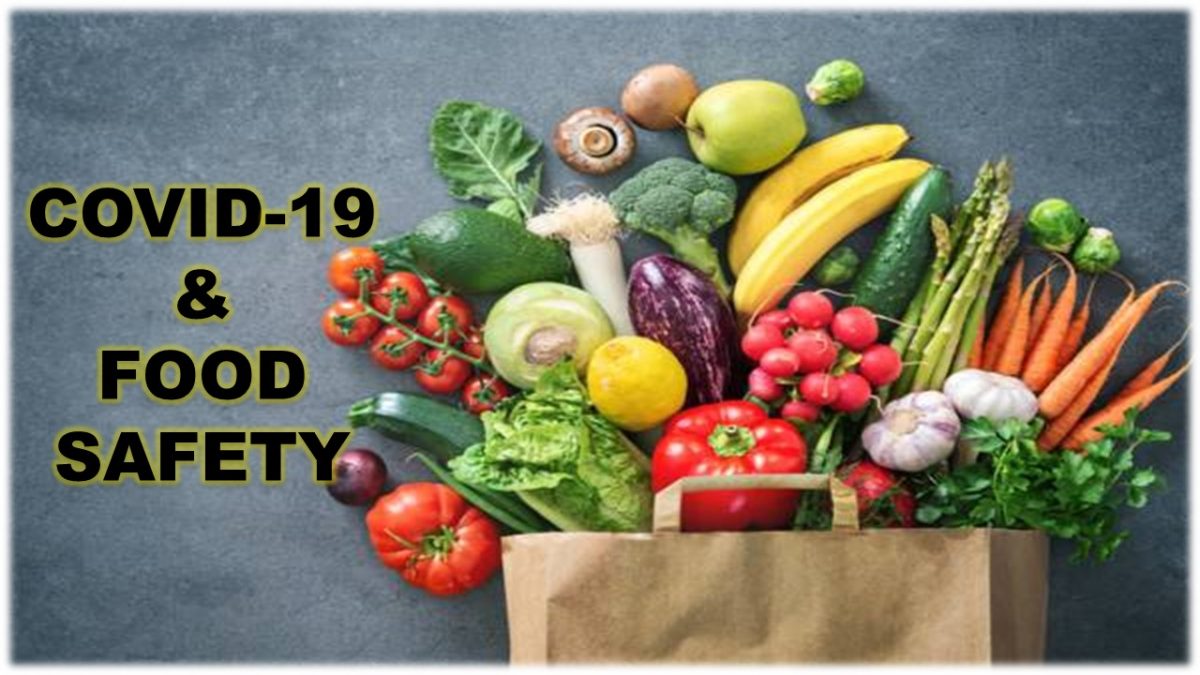What is COVID-19 and the symptoms?
COVID-19 is an official name of coronavirus diseases which caused by severe acute respiratory syndrome coronavirus 2 (SARS-CoV-2) announced by WHO on 11 February 2020. COVID-19 is a respiratory disease and most infected people will develop mild to moderate symptoms and recover without requiring special treatment. People who have underlying medical conditions and those over 60 years old have a higher risk of developing severe disease and death.
Common symptoms including fever, tiredness and cough. Other symptoms also including shortness of breath, aches and pain, sore throat, and very few people will report diarrhea, nausea or a runny nose.

Can COVID-19 be passed on through food?
No reported cases of COVID-19 have been linked to contamination of food. The main risk of transmission is from close contact with infected people. The advice to food businesses and consumers is to maintain good hygiene practices and to wash your hands regularly. Thorough cooking will kill the virus.
The virus is commonly passed on:
Directly, through contact with an infected person's body fluids (for example, droplets from coughing or sneezing)
Indirectly, through contact with surfaces that an infected person has coughed or sneezed on.
What can food workers do to prevent the spread of COVID-19?
Normal fitness to work procedures operated in food businesses should ensure that infected workers do not handle food. Staff should not work if they have any of the symptoms of COVID-19. Should an infected worker handle food it is possible that they could introduce virus to the food they are working on, or onto surfaces within the food business, by coughing and sneezing, or through hand contact, unless they strictly follow good personal hygiene practices.
These include :
Proper hand hygiene
Cough/cold hygiene practices
Safe food practices
Avoiding close contact with anyone showing symptoms of respiratory illness such as coughing and sneezing
Is there a risk to consumers from 'open' food?
There is currently little scientific information about the survival of the COVID-19 (coronavirus) on the surface of open food. Work with similar viruses shows that some food surfaces don’t allow the virus to survive at all, but some do.
Therefore, it is important to maintain good hygiene practices around open food (e.g. unpackaged bread, cakes, fruit, salad bars etc.) and this will reduce the risk of contamination of the food. People should strictly observe good personal hygiene practices at all times around open food.
Customers and food businesses are expected to behave in a hygienic manner. Food businesses are obliged to monitor open food displays to make sure they are hygienic and avoid having such open food displays near tills or serve-over counters, where customers are ordering or paying for food.
What are preventive controls in food industry?
1. Social Distancing
This involves maintaining a distance of 2 metres (6.5 feet) between people and reduced social interactions. To implement social distancing, food businesses could :
Limit the number of staff in a kitchen or food preparation area at any one time
Space out workstations and food preparation areas, if possible
Limit the number of people (staff, delivery drivers, customers) who can come into your premises at any one time
Use spacing measures (e.g. floor markers) at tills or queues, if possible
Use a ticketing system if appropriate
People showing any sign of COVID-19 symptoms (fever, new persistent cough, shortness of breath) should avoid any interactions with other members of the public. They should avoid going to shops, supermarkets, take-away, etc.
2. Staff Awareness
Food business owners should ensure that staff are aware of the COVID-19 situation and aware in terms of symptoms, social distancing, restricted movement, self-isolation and travel.
3. Touch Points
Touch points e.g. trollies, keypads, door handles etc., should be cleaned more frequently.
Wipes (or other forms of sanitisation) could be provided for customers to clean the handles of shopping trollies and baskets.
Ladles, tongs, condiment holders etc. should be washed and sanitised frequently.
Keep doors open where possible to minimise contact.
4. General
Avoid handling money and encourage the use of contactless payments if possible. If food workers must handle money, it is important to wash hands afterwards and always before handling food.
Some food businesses are just using disposable drinking containers. This is a measure put in place by individual businesses to reduce risk to workers and should be supported by customers.
Hand sanitisers should be provided by businesses where possible.
Food business owners should remember that they have particular responsibilities under food law and must maintain proper hygiene practices at all times.
Source : WHO & FSA Ireland
We are keen to make everyone including foo industry safe and free from food poisoning.
#stayhome #staysafe #magcolmsolutions #foodsafetytips
It is always advisable to enlist the assistance of professional service provider to help keep your food business on track in terms of the Food Safety.
Create a strategy to address potential pest problems before they start.
Not knowing how to start?
Let Magcolm Solutions helps you!
Magcolm Solutions remains steadfast in welcoming you to be part of the food business component in providing advisory to the food industry players. Contact us to be your professional food handling partner!


